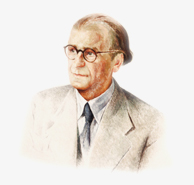1st International Conference on Koine, koines and the formation of Standard Modern Greek
November 3rd-4th, 2017
Teloglion Fine Arts Foundation, A.U.Th., Thessaloniki
The Institute of Modern Greek Studies [Manolis Triandafyllidis Foundation] of the Aristotle University of Thessaloniki, within the framework of the annual international conferences on the study of the Greek language in all its historical and geographical range, organized the “1st International Conference on the Koine, koines, and the formation of Standard Modern Greek” on November 3-4, 2017, in Thessaloniki, in Memoriam of the leading Greek linguist Michalis Setatos (1929-2017), who was a member of the Institute's Board of Directors from 1973 until 2017. The aim of the conference was to examine the problems associated with the emergence of koines in Greece, as well as in the other Balkan countries, giving the opportunity for a new approach to the theoretical problems in question and for a re-examination of aspects of the Hellenistic Koine.
Professors David Britain (University of Bern, Switzerland), Ranko Bugarski (University of Belgrade, Serbia), Peter Trudgill (University of Fribourg, Switzerland), Christoforos Charalambakis (University of Athens) etc., leading scholars on issues related to the conference’s focus areas, participated in the conference.
This conference brought to completion the first three-year cycle of the Institute’s conferences dedicated to the study of the Greek language across time and space; the defining characteristics of these conferences, which we hope will also apply to the final conference of the first cycle, are as follows:
(a) promotion of topics and issues which previous conferences, at least in Greece, have tended to ignore (ancient, medieval and modern Greek etymology, Balkan etymology, emergence of Standard Modern Greek, Koine etc.), and new approaches to well-known problems (language contact in the Balkans and (comparatively) in Asia Minor);
(b) participation of eminent experts, both Greek and foreign from different areas of research, which should help us to achieve a many-sided approach to the issues in question;
(c) increased involvement of students (both undergraduate and postgraduate) from universities across Greece.
A conference should aim to address questions that are well-known in its field, but also to widen the scope of investigation, directing interest towards less well-studied, or indeed unstudied issues. The issues to be discussed come under four main topics:
1. Hellenistic Koine
Where was the Hellenistic Koine originally formed? What was the role of earlier forms of literary koine in its formation? Did the influence of other dialects on Attic involve spoken or written language? Was the spoken Koine homogeneous, like the written Koine? What was the role of local koines in the formation of the Koine, especially its spoken forms? To what extent was its development affected by the process of standardization? Are the phonological and morphological simplifications that characterize the Koine the result of the process that led to its emergence (koineization), or are they natural, internal developments of Attic? Are the linguistic criteria used to determine its dialect basis adequate?
2. Theoretical issues
What is the relationship of the Koine with the koines? What are the most useful criteria for a typology of koines? What is the position and role of local koines before and after the formation of the koine? What are the consequences of bilingualism for the formation of a koine? What is the role of common historical, social and political developments in the formation of a koine? What are the motives for doubting the dialectal basis of a koine?
3. Standard Modern Greek
When and where was the Standard Modern Greek koine formed? Is it based on one or more dialects (monodialect-basis theory and polydialect-basis theory)? When did the economic and political conditions (strong economic, political and cultural centres) and demographic characteristics that favour the appearance of a koine appear? What are the linguistic criteria that can help us to identify its dialect basis? What was the role of the archaizing and demotic written traditions in determining the choice of its basic characteristics? What is the role of local koines? What are the distinctive features, if such exist, of the emergence of Standard Modern Greek? How does the emergence of the Modern Greek koine fit into the wider Balkan landscape?
4. Koines in the Balkans and other countries
Are there common elements in the formation of koines in the various Balkan languages? What are the advantages of a comparative investigation of the formation of koines in countries with a similar historical and political background? Are there features which distinguish the formation of koines in the Balkan languages from the equivalent processes in the languages of Western Europe? What is the relationship between the formation of koines in the Balkan languages and debalkanisation?
This conference was the third one in the series of annual international conferences on the study of the Greek language in all its historical and geographical range organized by the Institute of Modern Greek Studies, and are alternately devoted to (a) Greek Etymology (2015, next: 2018), (b) Language Contact in the Balkans and Asia Minor (2016, next: 2019), and (c) Koine, koines and the formation of Standard Modern Greek (2017).



